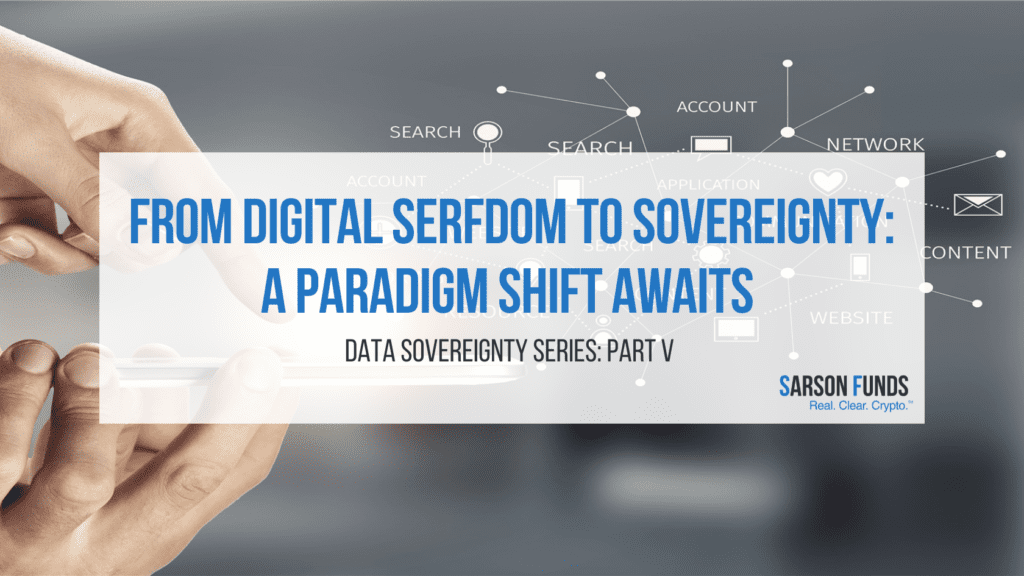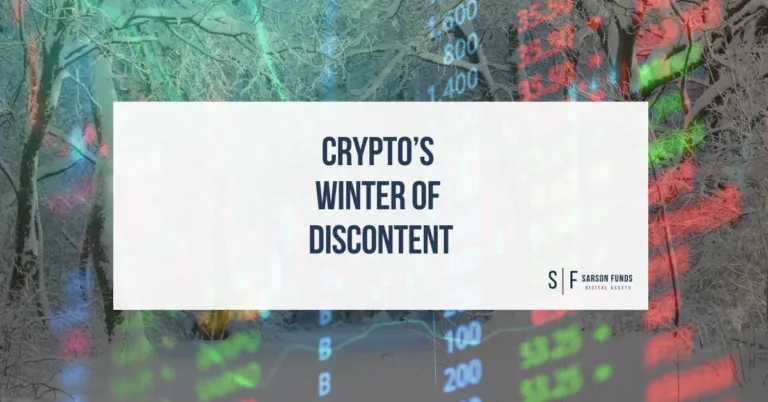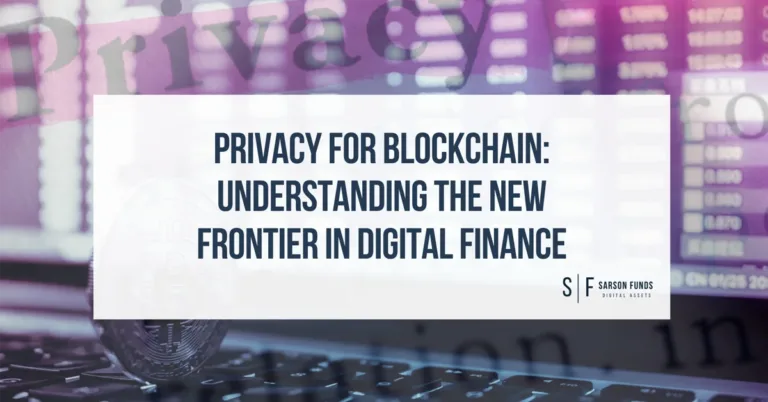
So far, the Data Sovereignty Series has brought several topics to light about the new age dynamics of the data industry and digital economy. Discussions have varied from identifying the oligopolistic power structures of the data economy, the consequences and opportunities of data control, how the data oligopoly has enabled digital feudalism, and how blockchain can optimize data management and promote data sovereignty. By now, we understand our audience likely has many questions – what can we do about big tech data ethics? How can we regain control of our data? How can we reinforce personal data sovereignty in the face of digital feudalism? Understanding the pace of modern tech innovation, the answers to these questions are always changing as new avenues toward personal data sovereignty emerge. This chapter of the Data Sovereignty Series will help answer some lingering questions by diving deeper into the digital feudal structure and begin looking to blockchain for solutions.
As compared in Episode IV, the current data economy divides society into a social hierarchy, which flows accordingly: Tech Elites on top, Big Tech Companies, Big Tech Employees, and internet users on the bottom.
First, the digital elites. In the digital age, those controlling the most data have the most power. Period. The technology titans who created the data value structure have thus placed themselves at the top of the data flow pyramid. The digital elites disproportionately control society’s understanding of data value, its distribution chain, and know how to protect themselves from the digital feudal system. Ultimately, these elites have achieved their status because of the power they have over society and their control over their own data. The power, influence, and control collectively makes these elites the most sovereign individuals in society today.
Below the data elites are the very enterprises that control the global data supply. Data storage companies act as an oligopoly, which is a market controlled by a small number of dominant parties. These companies are critical parts of the data management market, profiting off of user data supply facilitation, demand from digital advertisers, and storage services. Big tech companies have captured society’s trust for data supply management because of the lack of alternative options, hence the “oligopoly.” These companies have set western society up to depend on their services, so much so that most people give their personal information, clicks, and attention freely with the perception that data supply managers ethically and securely store and distribute their data. Unfortunately, these expectations are not always met.
Next down the ladder are the employees of companies inside the data oligopoly, who labor willingly for the digital elites and have the privilege of understanding the data value pyramid. These workers are privileged to see the inner workings of the data supply chain first hand and are largely advantaged with a degree of knowledge on how to protect their data.
Finally, the lowest, largest part of the pyramid are internet users who create data on websites. These individuals, resemblant of feudal serfs, give the most and receive the least. They scroll through and engage with websites and social media platforms in an effort to quench their dopamine desires, similar to how serfs would labor on their lord’s land to afford a living. Digital serfdom continues because the majority of modern serfs fail to recognize the value their digital engagement provides for big tech companies. The data these individuals create is used to optimize platforms for better user experiences and, in many cases, is then distributed to interested third parties. Data optimization algorithms provide users exactly what they previously expressed enjoyment of, creating an addictive cycle that incentivizes continued user engagement in return for the content that users look for. Wealth inequality is further prompted by data inequality, making digital serfdom a cyclical phenomenon.
To put this digital feudal structure into perspective, a real world example can be seen by inputing the feudal narrative to Facebook. Mark Zuckerberg exists as the digital elite, who has amassed incredible power, influence, and following from his leadership of a leading data creation, storage, and distribution social platform. Further down the chain is the company of Facebook itself, which has deployed a social media website where users engage with each other, the world, businesses, and even purchase goods on demand. While people use Facebook, data from various levels of their preferences is gathered, organized and stored on Facebook’s servers, and later distributed to digital advertisers and other third parties for profit. The penultimate category of the data pyramid are Facebook’s software developers and employees who understand the inner workings of their employer, but are paid coveted salaries to continue working. Finally, the bottom of the totem pole are Facebook’s users, who generally have little understanding of the value their engagement creates for Facebook.
Centralized data control leverages the profitability of data to aggregate the power it has over society. As disproportionate data control is realized, data rights are of rising prominence in the minds and hearts of individuals conscious of their digital footprint. Crown Sterling’s Data Bill of Rights seeks to spearhead the legal effort to declare data the intangible personal property of original producers and reinforce personal liberty and sovereignty in the face of digital feudalism.
A new system incentivizing community over company and privacy over profits is needed to take power back from the elites so it can be returned to the user. Luckily, blockchain is creating new avenues to create, store, distribute, and monetize data that returns privacy, data control, and profits back to the original producers of data. Crown Sterling is using blockchain technology to trailblaze their own effort for personal data sovereignty, having integrated the Data Bill of Rights into the genesis block of their proprietary blockchain and digital asset, the Crown Sovereign.
The desire for data sovereignty and equality is the thesis that brought cryptocurrency and decentralized networks to where they are today. Rather than having a pyramid with users at the bottom, the transparency of blockchains enforce trust across their networks and operate in the best interest of users.
Blockchains are enabling internet users to free themselves from the digital feudal system and begin profiting from the data they create. As blockchains are essentially a universally transparent accounting ledger, if the data supply chain were translated onto a blockchain, original data producers would be able to see and track their data across the whole network, and profit when third parties want access to their data, getting a piece of the rewards each time their data is distributed. Data can also be distributed in the form of an NFT, where a dataset can be tokenized and sold on the blockchain.
With so much attention focused on data ethics, Sarson Funds believes that a future of personal data empowerment is not too far away. With blockchain as the equalizer, the crypto ecosystem is equipped to return data control to the hands of individuals, just as it enabled banking for the unbanked. The future is bright for personal data sovereignty.
Disclosures: Not investment advice. It should be assumed that Sarson Funds or its affiliated managers hold positions in all projects that are discussed. It is not possible to invest in any project directly through Sarson Funds, Inc. or its affiliated managers. Any investment product offered by managers affiliated with Sarson Funds should be assumed to be only available to Accredited Investors and subject to the individual terms and conditions of that offering including but not limited to those eligibility requirements associated with U.S. Securities Regulation D, section 506c. Talk with your financial advisor before making any investment decisions or have them contact Sarson Funds directly at [email protected]









